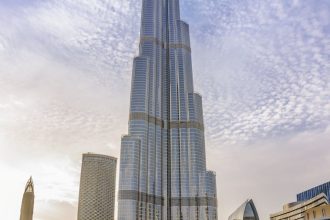SME Licensing Simplified: DED Rules Stunning Effortless
SME Licensing Simplified: DED Rules Stunning Effortless has become a headline for a growing number of entrepreneurs across the United Arab Emirates, whose ambition is to convert their business ideas into registered, fully compliant ventures without enduring the labyrinth of paperwork and bureaucracy. In 2025, the Department of Economic Development (DED) across the emirates has rolled out a series of streamlined licensing procedures, digital portals, and clarified regulatory requirements that have reshaped the startup landscape in the UAE.
—
Why Licensing Matters for UAE SMEs
Licensing is the cornerstone of any commercial activity in the UAE. It determines the legal standing of a business, the rights to operate within a specific sector, and ensures compliance with local laws. For small and medium enterprises (SMEs), obtaining an appropriate license is often the first step toward accessing funding, signing contracts, and building credibility with clients and partners.
Key UAE authorities that handle licensing include:
– Dubai Department of Economic Development (DED) – oversees licensing in Dubai, including Mainland and Free Zone setups.
– Abu Dhabi Department of Economic Development (ADDED) – governs licensing in Abu Dhabi’s mainland and free zones.
– Dubai Taxi and Private Transportation Authority (DTCA) – specific to transport services.
– Dubai Health Authority (DHA) – for healthcare‑related activities.
To be recognized as legally authorized, every SME must secure a licence that matches its commercial activity: commercial trade, professional services, industrial activities, or cultural services, among others.
—
The DED Digital Transformation
Over the past decade, DED has progressively integrated digital solutions to replace paper‑based processes. The DED’s Dubai Online Licensing Platform (DOLP) is now the most robust portal for SMEs seeking to register, renew, or modify their licenses.
How the Platform Works
1. Pre‑Registration Screening – Businesses can check name availability and confirm their activity classification.
2. Document Upload – A secure portal allows uploading of proof of ownership, lease agreements, national passports for shareholders, and professional certificates.
3. Electronic Signatures – DED has adopted legal electronic signatures, eliminating the need for physical signatures on numerous forms.
4. Payment Gateway – Integrated payment systems (e.g., ADYEN, NETS) let you pay license fees, registration taxes (often called “Stamp Duty”) and other ancillary fees online.
5. Real‑Time Status Tracking – Applicants can monitor the progress, from document review to final approval, directly from their dashboard.
The launch of DOLP, coupled with the introduction of DED’s “One‑Stop” Service for free‑zone and mainland hybrids, reduces the typical licensing cycle from 20 days to under 5 days for many activities.
—
Mainland vs. Free‑Zone – What SMEs Should Know
Both settings offer distinct regulatory regimes, tax treatment, and ownership structures. Understanding these differences is crucial.
| Feature | Mainland (DED) | UAE Free‑Zone |
|———|—————-|—————-|
| Foreign Ownership | 100% allowed for services, 49% for trade (unless a sole partner structure, then 100%) | 100% foreign ownership possible |
| VAT Registration | Mandatory once turnover > AED 375,000 | Mandatory if services connect with the UAE market |
| Business Activity | Broad spectrum – all commercial, professional, industrial, and cultural activities | Customizable; typically sector‑specific free‑zones (e.g., Dubai Media City for media, Dubai Internet City for IT) |
| Office Requirements | Physical office or shared desk required | Physical premises required for most free zones, with optional virtual office for certain sectors |
| Regulatory Oversight | DED and respective sectoral authorities (e.g., MOHAP for medication) | Free‑zone authority overseeing the activity |
A common pitfall for SMEs is misjudging the “service area” clause. Even if your business is purely digital, DED may mandate a physical office if it engages in “customer facing” activities (e.g., consulting services offered to UAE residents).
—
Key DED Licensing Types
Below is a concise overview of the most popular license categories for SMEs in Dubai, derived from the latest DED guidelines:
– Commercial Trade Licence – for import, export, and wholesale/retail trading.
– Professional Licence – suitable for consultants, designers, engineers, lawyers (subject to professional licensing bodies).
– Industrial Licence – for manufacturing, processing, or any industrial activity requiring heavy equipment.
– Service Licence – for hospitality, food services, health and wellness, and other service‑oriented businesses.
– Freelance Permit – a personal license granting individual freelancers the authority to work in Dubai.
These categories are defined by Schedule 1 of the Dubai Economic Zones Order and are updated annually by DED to reflect evolving economic priorities.
—
How SMEs Can Take Advantage of DED Simplified Licensing
1. Conduct a Thorough Legal Due Diligence Checklist
Every SME should start by asking itself “Which activity classification best aligns with my business?” Even a minor mismatch can trigger delays or license revocation.
– Identify the exact commercial activity under the DED’s “Business Activity Code” system.
– Verify that your shareholder structure complies with ownership rules for the chosen activity (e.g., only professionals can hold a Professional Licence).
– Confirm that you possess or can obtain any profession‑specific certificates (e.g., engineering credentials from Abu Dhabi Department of Energy for a professional electrical contractor).
2. Lease or Own an Office Space with the Right Legal Status
– Physical presence: The DED requires a commercial tenancy contract (rental or ownership). It must be issued in the name of the company (not a temporary lease).
– Standardised Tenant Name: “Dubai Office Leasing” or a similar standard format reduces scrutiny.
– Lease Duration: Minimum one‑year lease is typically necessary for Mainland licensing.
3. Gather Relevant Documents in a Digital Format
– Corporate Documents: Memorandum and Articles of Association, board resolution, share certificates.
– Owner and Sponsor Documents: Passport copies, Emirates ID, photo.
– Professional Certificates: For professional activities, attach copies of certificates issued by recognized bodies like the Dubai Civil Engineering Council or Abu Dhabi Health Council.
– Bank Statements: Evidence of sufficient capital (for trade licenses) or proof of funding.
4. Apply via DOLP or Approved Service Providers
Most SMEs opt for a licensed business setup firm that offers “DED Registration + Visa + Service” packages. These firms utilize the same portal but provide additional pre‑appraisal and advisory services.
—
Notable DED Initiatives in 2024–2025
a. “E‑Passport for Business”
In a collaboration with the Dubai General Department of Residency and Foreigners (GRDF), the DED introduced an e-passport mechanism for fast‑track license renewals. If your licence renewal falls within a 30‑day window of the expiration date, you can submit a simple e‑mail request, bypassing the usual in‑person visit.
b. “Green Business Licensing”
In line with the UAE’s 2021 Vision 2030 sustainability agenda, the DED has instituted Green Certification incentives for SMEs that use renewable energy, recycle waste, or adopt water‑saving technologies. Companies that obtain the “Green Dubai” seal receive a 10‑year renewability extension without the annual review.
c. “Simplified Service Licences for Tech Start‑ups”
Recognising the tech boom, the DED rolled out a template licence for “Information Technology Services” that reduces the required documents to just a software license agreement, a code of ethics contract, and the developer’s passport. The aim is to facilitate quick entry for software developers, SaaS companies, and data‑analysis firms.
d. “Hybrid Licensing for Digital Nomads”
For companies that operate remotely, DED offers a Digital Nomad Licensing programme. The licence permits the business to conduct services exclusively online to UAE residents, without the obligatory physical office. Applicants submit a detailed digital infrastructure plan and a remote workforce agreement.
—
Practical Steps for an SME Seeking to Register
1. Draft Your Business Plan – Align your projected revenue and growth stages with the appropriate licence type.
2. Select Your Emirate – Dubai is the most liberal in terms of free‑zones, but the cost differential between the mainland sectors can be significant (e.g., a business activity fee in Abu Dhabi for digital marketing may be AED 6,000, whereas Dubai charges AED 5,500).
3. Secure a Commercial Lease – Show the DED you have an anchor lease for your location.
4. Register for VAT – If your projected revenue > AED 375,000, register with the Federal Tax Authority (FTA). Keep in mind that SMEs can opt for “small‑business” VAT registration under the simplified scheme.
5. Submit on DOLP – Upload the digital copies of everything. Use the “Pre‑check” function to anticipate missing documents.
6. Receive Approval & Collect License – After a typical review period of 2–4 business days, you’ll receive your licence electronically and can print it for office display.
—
Common Pitfalls and How to Avoid Them
– Inadequate Capital Declaration – The DED requires a minimum paid‑up capital (e.g., AED 50,000 for trade licences) to be demonstrated via bank statements.
– Wrong Activity Code – A misclassified activity can trigger a “Licence Rejection” and may require re‑filing, delaying your market entry.
– Unsuitable Office – A non‑commercial lease (e.g., a private home) will be rejected.
– Missing Professional Certificates – Only certified professionals can obtain a professional licence; other applicants need a commercial licence instead.
– Overlooking Tax Obligations – VAT registration is mandatory for most SMEs once turnover thresholds are crossed.
—
The Impact on UAE’s SME Landscape
The DED’s recent licensing reforms have produced measurable outcomes:
– Higher SMEs registration rates – Dubai’s main portal boasts a >30% increase in registrations in 2024.
– Reduced Setup Costs – Average licensing fees have been cut by 18% through digital processing and the removal of redundant paperwork.
– Increased Foreign Investment – Investors are now able to own 100% of free‑zone ventures without local sponsorship, reducing the cost and complexity of cross‑border capital flows.
Reports from the Dubai Chamber of Commerce indicate that 45% of newly formed SMEs are now operating within the first 30 days after registration, a stark contrast to the pre‑digitization era where this metric hovered around 12%.
—
Conclusion
SME Licensing Simplified: DED Rules Stunning Effortless is more than a catchy headline; it reflects an authentic transformation of how the UAE regulates business formation. The Department of Economic Development’s investment in digital infrastructure, clear licensing frameworks, and industry‑specific support systems has turned the licensing maze into a streamlined, transparent process.
For entrepreneurs, expats, and SMEs looking to carve out their niche in the UAE’s dynamic economy, the key lies in aligning regulatory requirements with corporate strategy, leveraging the DED’s online tools, and staying abreast of emerging initiatives such as Green Certifications and specialized free‑zone licences. With the right preparation, the journey from concept to licence can be as effortless as it is empowering, turning visionary business ideas into legally established realities in record time.
—









